I'm pleased to announce the second release of Toad for Oracle this year which went GA on October 18.
This is a brand new feature that addresses the needs of DBAs concerned about data privacy with the emergence of GDPR as well as some other significant enhancements around PL/SQL debugging and Oracle 18c support.
This release of Toad for Oracle forms part of the Toad for Oracle Editions 2018 R2 release and comprises the following product updates (depending which Toad Editions you own)
- Toad for Oracle 13.1
- Benchmark Factory 8.1– a part of Toad Developer and Toad DBA Editions
- SQL Optimizer for Oracle 9.3 – a part of Toad Xpert Edition and higher
- Spotlight on Oracle 10.7 – a part of Toad DBA Edition
- Toad Data Modeler 6.5 – available with ALL Toad Editions
- Code Tester for Oracle 3.5 – a part of Toad Developer Edition
So let's get right into the new stuff!
Sensitive Data Awareness (Professional Edition and higher)
As a DBA, I’m sure you are probably aware by now there’s been a lot of recent coverage around data breaches and access to personal data. You may also have heard about the new European General Data Protection Regulation (GDPR) legislation that went into effect on May 25th this year.
The maximum penalty for non-compliance is 4% of annual revenue or €20 million, whichever is higher. Lower fines of up to 2% are possible for administrative breaches, such as not carrying out impact assessments or notifying the authorities or individuals in the event of a data breach. This puts data protection penalties into same category as anti-corruption or competition compliance.
There are also other data privacy regulations in the US and elsewhere including HIPAA, HITECHPCI.
You might be asking yourself, so what do I need to know and how do ensure our business is protected?
The first thing you need to consider is one aspect of GDPR called “Privacy by Design”. This requires a fresh look at how you should design your systems with data privacy as a priority. This starts with data discovery.
How do I know what data in my databases is “Personally Identifiable Information” or PII?
In the new Toad Options window, you can use some of the pre-defined rules to determine what types of sensitive data you need to identify or you can modify or even create your own rules.
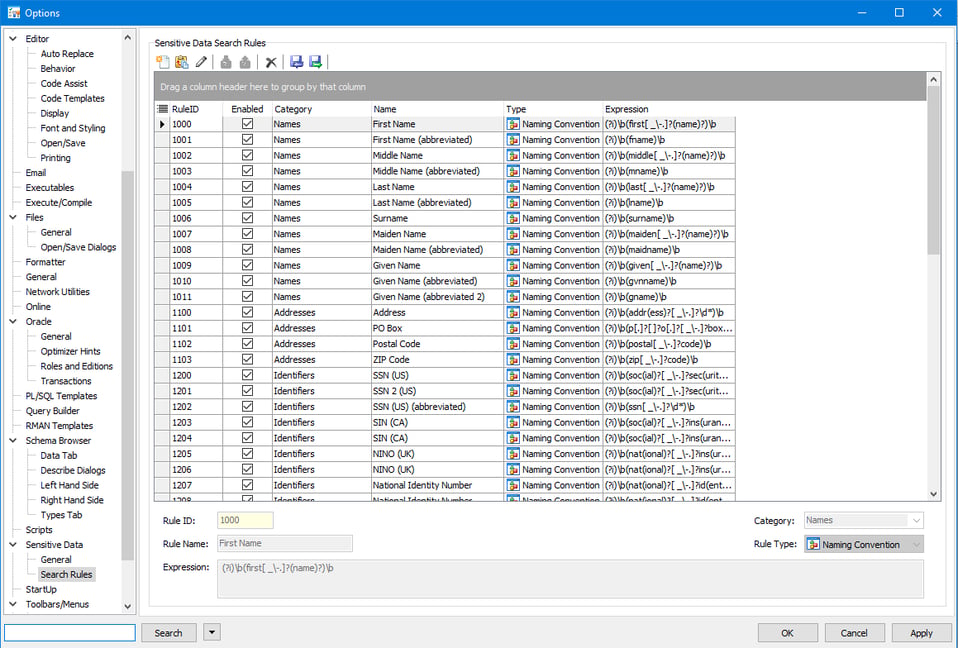
Figure 1: Defining your Personally Identifiable (Sensitive) Data rules
Having selected which rules you want to use, you can expose where table columns are being used which could contain sensitive data as you can see in the Alter Table script below.
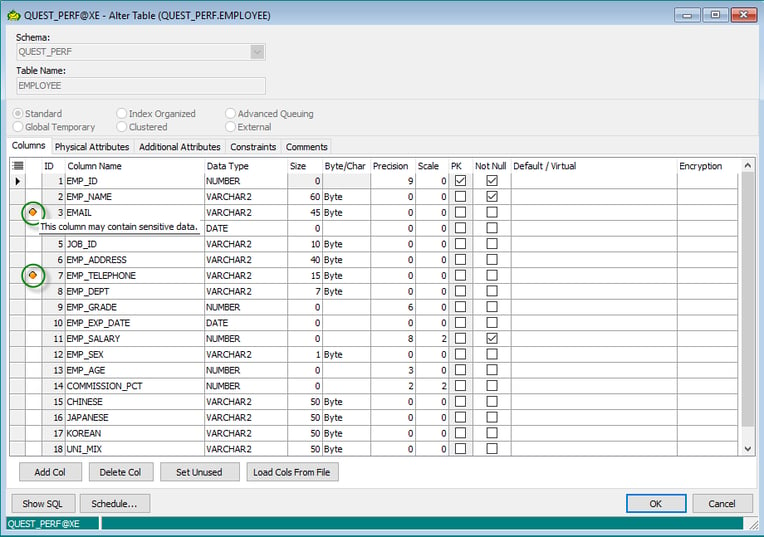
Figure 2: Identifying Personally Identifiable (Sensitive) Data in a table
Sensitive Data Search (Coming Soon)
After discovering where sensitive data resides, the next step would be to decide on the most appropriate course of action to protect the data from unauthorized access. Do you use Oracle’s Data Redaction feature or go for data encryption using Oracle’s Transparent Data Encryption features? Toad already leverages these features as a part of the DB Admin Module. You will also be able to export a report containing the results of the search.
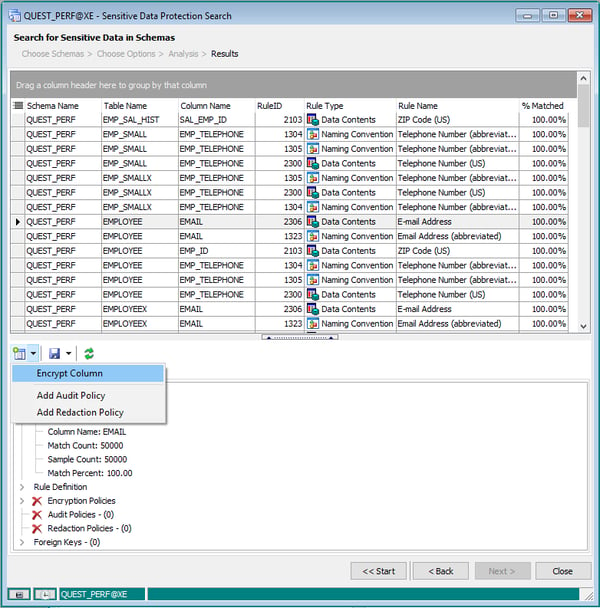
Figure 3: Sensitive Data Search identifying PII for protection
The Sensitive Data Search capability will also extend the existing DB Health Check feature (DB Admin Module). Since both Sensitive Data Search and DB Health Check can be automated, it means you could include this capability into your DevOps Continuous Integration/Continuous Testing process.
Although these capabilities don’t form a part of this Toad release, they are coming soon, so watch this space!!
Migrating to Oracle Database 18c?
We’ve added a number of features which exploit some of the new features in Oracle Database 18c
These include (but are not limited to):
- Enable Lost Write Protection and specify Shadow Tablespace – For an 18c database, you can enable shadow lost write protection and specify a shadow tablespace to be used.
- Create Role or User with GLOBALLY AS clause – The Create (Alter) Role dialog supports the
GLOBALLY AS clause
- Memoptimize for Read – The Create (Alter) Table dialog supports the Memoptimize for Read attribute for tables in Oracle 18c
- Inmemory compression for external tables – Inmemory compression is now supported for external
tables in Oracle 18c.
- Merge partitions ONLINE – An ONLINE option is available for merging partitions and subpartitions for Oracle 18c. This feature is supported in the Alter table dialog
- Create snapshot and create pluggable database from snapshot – In Oracle 18c you can create a snapshot in a pluggable database. You can also create a pluggable database from a snapshot.
We’ve also provide additional support for Oracle 12c R2 and 11g R2 to exploit additional features.
Debugging improvements (All Toad Editions)
Throughout Toad’s history, the PL/SQL debugger has worked with Oracle’s DBMS_DEBUG package, and this will continue to be the case for now.
However, Oracle have deprecated support for the DBMS_DEBUG package as part of the Oracle Database 12c R2 (12.2) release, and recommend using the DBMS_DEBUG_JDWP package instead. In this release of Toad, you now have the option of using either.
Setting up Toad to use JDWP debugging requires some setup changes and these are simplified using a brand new wizard which walks you through the necessary steps and checks your environment to make sure it’s properly setup.
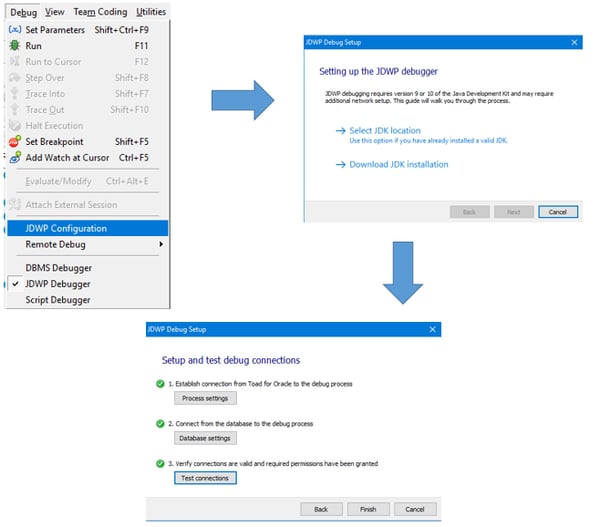
Figure 4: Setting up JDWP debugging in Toad
So far as the debugging workflow is concerned, there are no changes so you won’t see any differences to your Toad debugging experience.
Improving the Toad Freeware/Trial experience
We introduced some changes to the way Toad Freeware and Trial work in our June release, but I thought I’d include a reminder in this blog in case you missed it.
Our Toad Freeware continues to be extremely popular so, for all you freeware users out there, you’ll love this!
The first 30 days of Toad Freeware use will give you full access to all the features in Toad Professional Edition plus all the features in the DB Admin Module. After that time, the freeware will revert to its usual mode showing the Base Edition features. If, during your use of Freeware you would like to evaluate the commercial features again, you just click the Toad for Oracle community link which takes you to Toad World where you can click the Downloads button to download a Trial version.
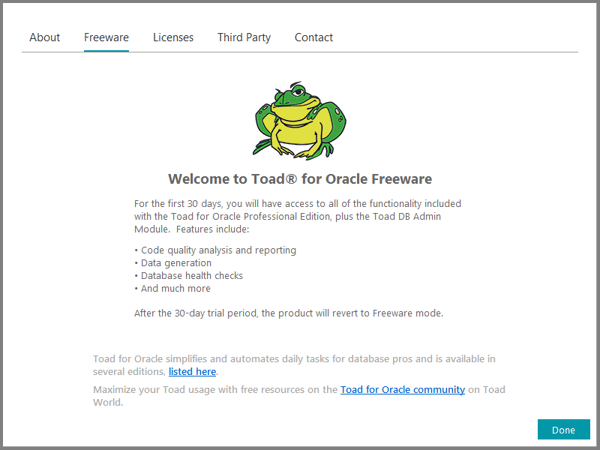
Figure 5: New Toad Freeware fully featured for 30 days
It might be that you don’t have enough time during the 30 day evaluation period to fully explore what Toad can offer. Currently, the Toad Trial would simply stop working after it expires and you’d have to go get another Trial. What will happen now is that Toad will revert to Freeware mode, which means you can carry on doing some limited evaluation, until you receive your new Trial license which you can enter into Toad’s Licenses window and be up and running again without having to download another Trial version.
So that's it! I hope you enjoy this exciting new version and if you don't yet use Toad and would like to try it, please click here for the trial download. And if you already own Toad for Oracle and have a support & maintenance contract, upgrade your Toad here.
Start the discussion at forums.toadworld.com